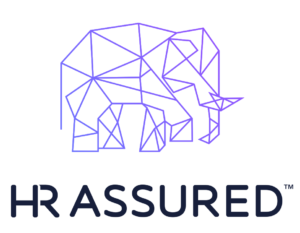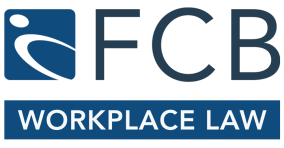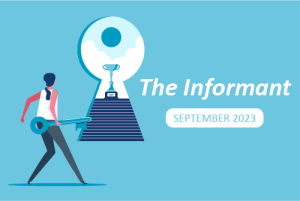Understanding psychological safety in the workplace
August 19, 2021By Brittany Byrne & Adrian Turner
Before the pandemic, working from home (WFH) was a workplace perk that was hard to come by – this type of workplace flexibility was irresistible to many. WFH has significant benefits to employees and employers. However, as WFH is rapidly becoming the new norm amid an unrelenting pandemic, it is exposing more and more the psychological risks to employees.
While many thought we would say goodbye to lockdowns as we farewelled 2020, the last two months have proven otherwise. The current COVID-19 crisis in New South Wales and the seemingly endless occurrence of lockdowns in the rest of Australia’s states and territories have forced employees to exclusively work from home for periods beyond those ever anticipated.
The increased isolation and uncertainty in the current climate are a timely reminder for employers to recognise and appropriately respond to the risk of psychological injury of their employees while they’re working from home.
Psychological injury includes a range of symptoms that can affect how we feel, think, behave, and interact with others. Depression, anxiety, or post-traumatic stress disorders – these are just some of the effects of a workplace injury. So, what are the signs of a workplace stressor? Reduced social interaction, difficulty detaching from work, a tendency to overwork, and high levels of workplace pressure; if these stressors are not identified, or are not appropriately managed, they’re at risk of compounding into more significant, long-term, workplace psychological injury.
Here we answer three questions to help you better understand psychological safety and its increasingly important role in the modern workplace.
1. Employer’s role – psychological safety
Work Health & Safety (WHS) laws impose a duty of care on employers to ensure the health and safety of their employees in the workplace. In the current climate, the workplace now includes workspaces an employee carries out work, including at home. While employers must ensure employees are physically safe, it is equally important to recognise and implement measures to protect their psychological safety.
Continuing to manage the risks of remote work means that employers should:
1. Review existing workplace policies and procedures to ensure they equip employees with the information and tools required to protect psychological safety as reasonably possible;
2. Re-evaluate workplace surveillance measures, including in relation to the use of technology;
3. Determine if employees have been provided with clear, lawful, and reasonable directions about the performance of work from home including start and finish times, attendance to training in workplace health and safety policies and procedures, taking breaks, and attending virtual opportunities to socialise with the remainder of the workforce; and
4. Revisit measures put in place to protect psychological safety in an employee’s remote work and assess whether employees are aware of support programs like employee assistance and well-being services.
2. Do you have a mental health policy?
Policies regarding mental health in the workplace is a relatively new concept in most workplaces with many employers now implementing them. These policies are primarily designed to address psychological health in the remote workplace, but also, more broadly, in relation to mitigating risk to psychological health in the wider performance of work.
As these recent lockdowns continue, we see an enormous benefit to employers implementing a workplace policy that addresses psychological health and safety in the workplace.
3. Is your Work Health and Safety management system robust enough to manage psychological safety risks?
Today’s workplaces, regardless of industry or size, are all subject to stringent Work Health & Safety (WHS) laws. We have entered a time that recognises incidents that are common in white-collar workplaces, such as workplace bullying and sexual harassment, as being WHS issues. A time where workplace safety is a criminal jurisdiction, and where individuals within a business can be fined or even imprisoned for breaches of WHS laws.
Given that WHS law does not discriminate between physical and psychological safety in the workplace, it is critical that your WHS management system does not either. In an environment where employees are under significant mental demand working from home, the employer must ensure they have a robust WHS management system that can sufficiently identify, assess, control, and regularly review risks arising from psychological hazards at work.
We all know the saying ‘People don’t plan to fail; they fail to plan’, and this is certainly true when it comes to WHS. Managing WHS is all about planning. The better the processes, policies, and procedures you have in place, the better equipped you will be to not only deal with WHS issues but avoid them too. You can never be overprepared. Without adequate protocols, both you, your officers and your other employees won’t be able to effectively minimise the risks of injuries and manage incidents.
For example, when it comes to mental health and psychological injury, it is critical to have the appropriate policies and procedures in place. It’s also equally important to ensure your employees actively access these tools should they need them. If an organisation’s culture is one of overwork and pressure from leaders, then the employer is arguably creating psychological hazards for its employees that could lead to an illness or injury occurring. Employers must implement a WHS system that covers all bases to properly execute their WHS duties and responsibilities and reduce organisational risk.
HR Assured, which is part of FCB Group, offers a complete best-practice WHS management system which caters for managing psychological hazards through its cloud-based HR software, HRA Cloud, and its 24/7 Telephone Advisory Service. When clients partner with HR Assured, they receive an initial WHS audit of their business and a comprehensive report that identifies any gaps in compliance and recommendations on how to fix them, with the guidance of our expert advisors.
The WHS module within HRA Cloud has tailored workflows that empower managers and employees to manage health and safety in the workplace, regardless of location, and free from paper-based admin.
Do you have a question about WHS or managing mental health in the workplace? Contact the team at FCB Group today for a confidential discussion.
Get to know our authors:
Brittany Byrne is a Partner with FCB Workplace Law and is a leading expert in providing workplace business solutions to employers in the education, not for profit, hospitality, retail and construction industries. Brittany is recognised as a ‘safe pair of hands’ and technical expert in workplace relations and industrial relations law. Her experience includes advising employers on all aspects of the employment relationship. She is a trusted advisor and has a unique skill set.
Adrian Turner is a Senior Product Manager for HR Assured and General Counsel at FCB Group. Adrian was initially employed with FCB from 2014 – 2017 as a Workplace Relations Consultant and Solicitor, where his role primarily involved assisting partners with complex workplace disputes, employment litigation and advice for clients. Adrian spent the next four years working in a General Counsel role outside FCB and completing his Master of Business Administration (MBA). Adrian has since returned to HR Assured in a multi-disciplinary role across the legal services and business development areas of the company. Adrian draws on his technical expertise in employment and commercial law along with his business acumen to deliver tailored advice and practical solutions to our clients.


























